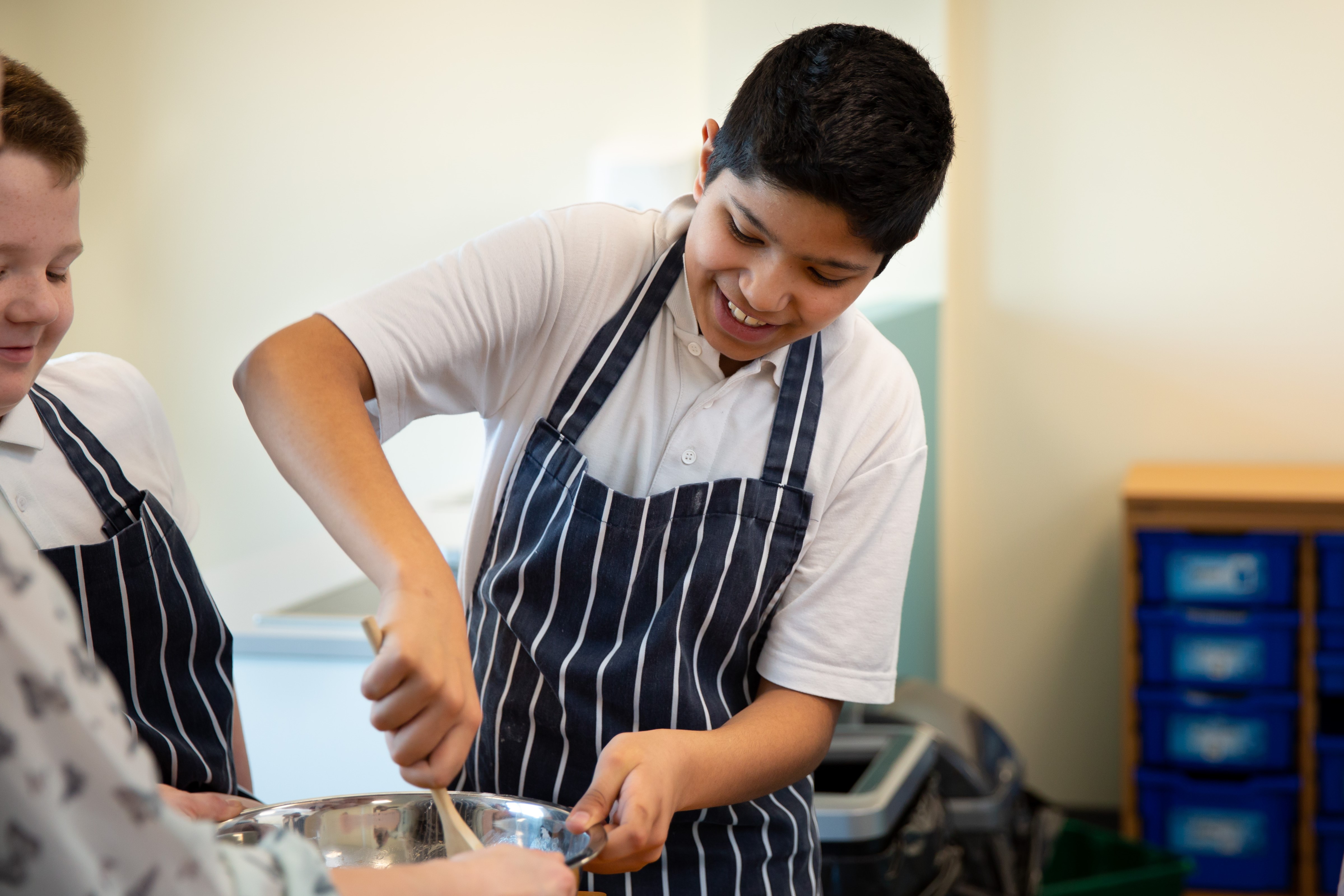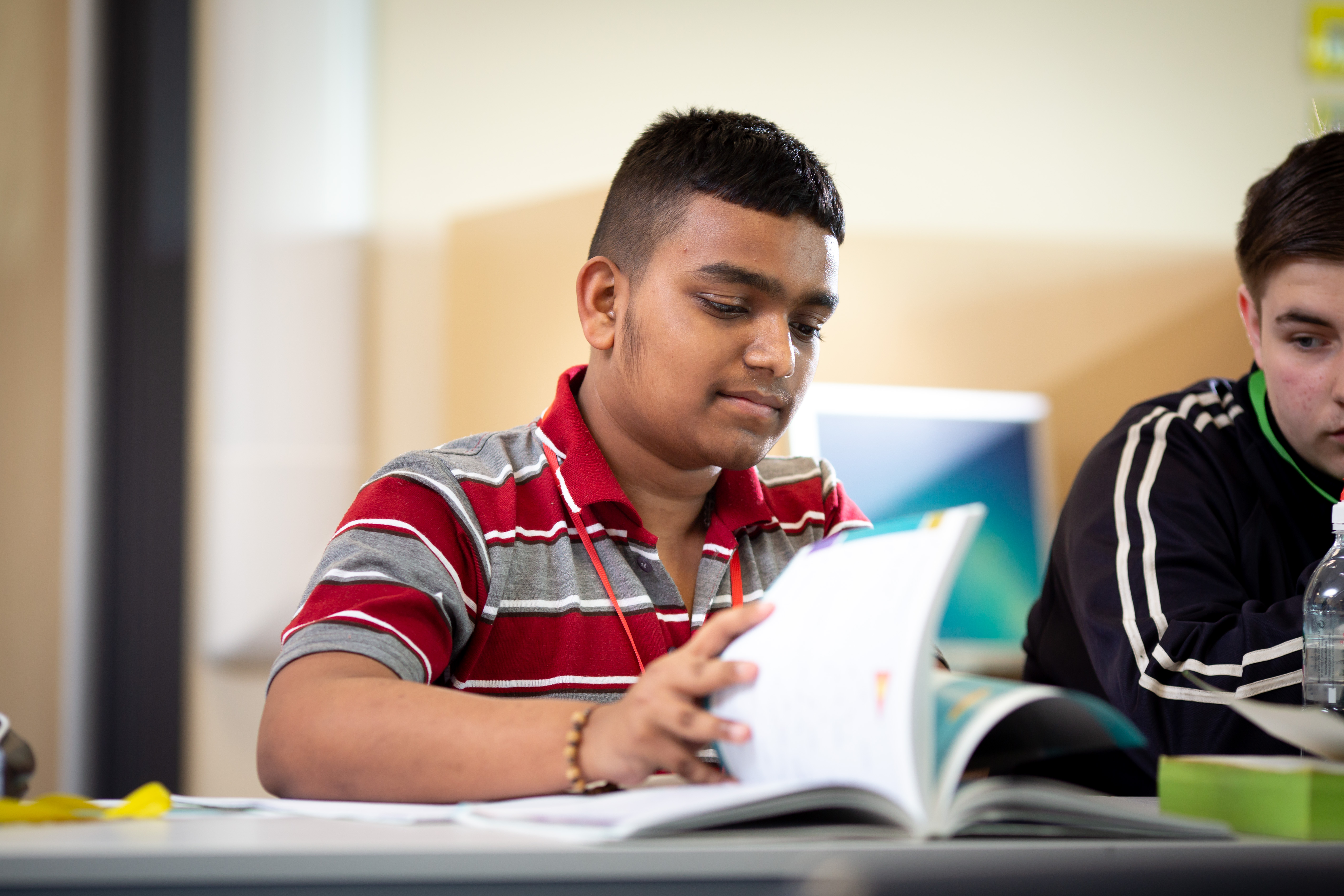Welcome to the Secondary Department
We are excited to welcome you to our Secondary Department. Watch the video below to find out more:
The Secondary Department supports pupils between the ages of 11 to 16 years with varying levels of learning needs, social and emotional difficulties and behavioural challenges.
There are currently 15 classes (nine KS3 - Lower Secondary classes and six KS4 - Upper Primary classes). Class sizes generally range between eight and 10 pupils, with at least one teacher and one teaching assistant supporting each class.
We follow the National Curriculum, which we adapt and differentiate to meet the pupils’ needs. Learning is broken into small steps and targets are personalised to ensure each pupil makes good progress in all subject areas. We use a range of teaching approaches to meet pupils’ needs and to promote independence through active learning.
Key Stage 3 (year 7 - 9)
In English and Maths, units of work for the appropriate year are taken from the National Curriculum Framework; the skills may be drawn from earlier years within the framework in order to match the ability of the pupils.
The school uses the Read Write Inc. approach to teach phonics and reading and to support the development of literacy skills across the curriculum. Phonics is taught as part of English lessons, and the skills are applied and developed in other lessons across the curriculum. Reading is also taught through shared, guided and individual sessions using age appropriate staged reading schemes.

Other subjects in KS3 include Science, Computing, Art & Design, Music, Cultural Studies (which include History, Geography, RE and Modern Foreign Language), Food Technology, Life Skills, PSHE and Citizenship. The Schemes of Work are based on the National Curriculum and adapted for the pupils’ needs and abilities.
Other subjects in KS3 include Science, Computing, Art & Design, Music, Cultural Studies (which include History, Geography, RE and Modern Foreign Language), Food Technology, Life Skills, PSHE and Citizenship. The Schemes of Work are based on the National Curriculum and adapted for the pupils’ needs and abilities.
Key Stage 4 (year 10 - 11)
In KS4, we offer a range of accreditations, matched to the pupils’ abilities.
In English, Maths, Science, PE and Art, the pupils follow the Entry Level qualifications programme of study. Those who obtain level 2/3 and meet the required emotional maturity and perseverance will also be offered the chance to study for a GCSE in English, Maths and Science. Those who achieve below Entry Level expectations, follow the programme of study and get the accreditation of Unit Awards. The Unit Award Scheme which awards small step achievements that can be added together to form part of a larger qualification. Pupils also work towards gaining an award or certificate from ASDAN in Personal and Social Development or Personal Progress awarded at one of the three entry levels.
Other subjects in KS4 include PSHE, Citizenship, Life Skills and Cultural Studies.

As part of the School Links programme, some KS4 pupils attend Brooklands College once a week. They travel to the college on school transport and are supported by school staff during the morning session. They choose the courses from a list, which include Engineering, Sport, Catering, Horticulture, Media and Hairdressing. They study one area per term (three in total across the year) and then in Year 11, they choose an area that they would like to study for the whole year and gain an accreditation in this subject.
Rights Respecting Schools and Healthy Schools
In Secondary, we are proud to incorporate the elements of RRS and HS into everyday life. The calm and respectful atmosphere within the department is indicative of the value placed on these aspects of learning. The elements of both frameworks are delivered in discrete lessons, in readiness to learn, as well as being promoted throughout all activities. The overall aims, differentiated according to the needs, abilities and age of the pupils is to:
-
raise pupils’ self-esteem and confidence, especially in their relationships with others;
-
to develop a sense of participation in their community and develop a sense of responsibility towards the community;
-
to gain knowledge and skills of how to lead a healthy lifestyle;
-
where pupils have the ability to understand, a respect for the values of democracy, the rule of law, individual liberty and respect and tolerance.
Pupils are encouraged to engage with the School Council, the Secondary Eco Committee and Charity Committee, which have class representatives and aim to provide a vehicle for expressing pupil’s views and for voting for the termly Jack Petchey Award.
Homework
For many of our pupils their time at school can be emotionally demanding. We are also aware of the length of time pupils may spend travelling to and from school. We therefore do not expect pupils to be studying and completing homework at the end of every school day. As in other areas of teaching and learning, homework is highly personalised. All pupils are encouraged to take home reading books and parents/carers are encouraged to build on their pupils’ interests and life experiences in order to supplement their schoolwork. Any parent/carer who wishes to support school work at home in more depth can discuss and agree this with the class teacher.